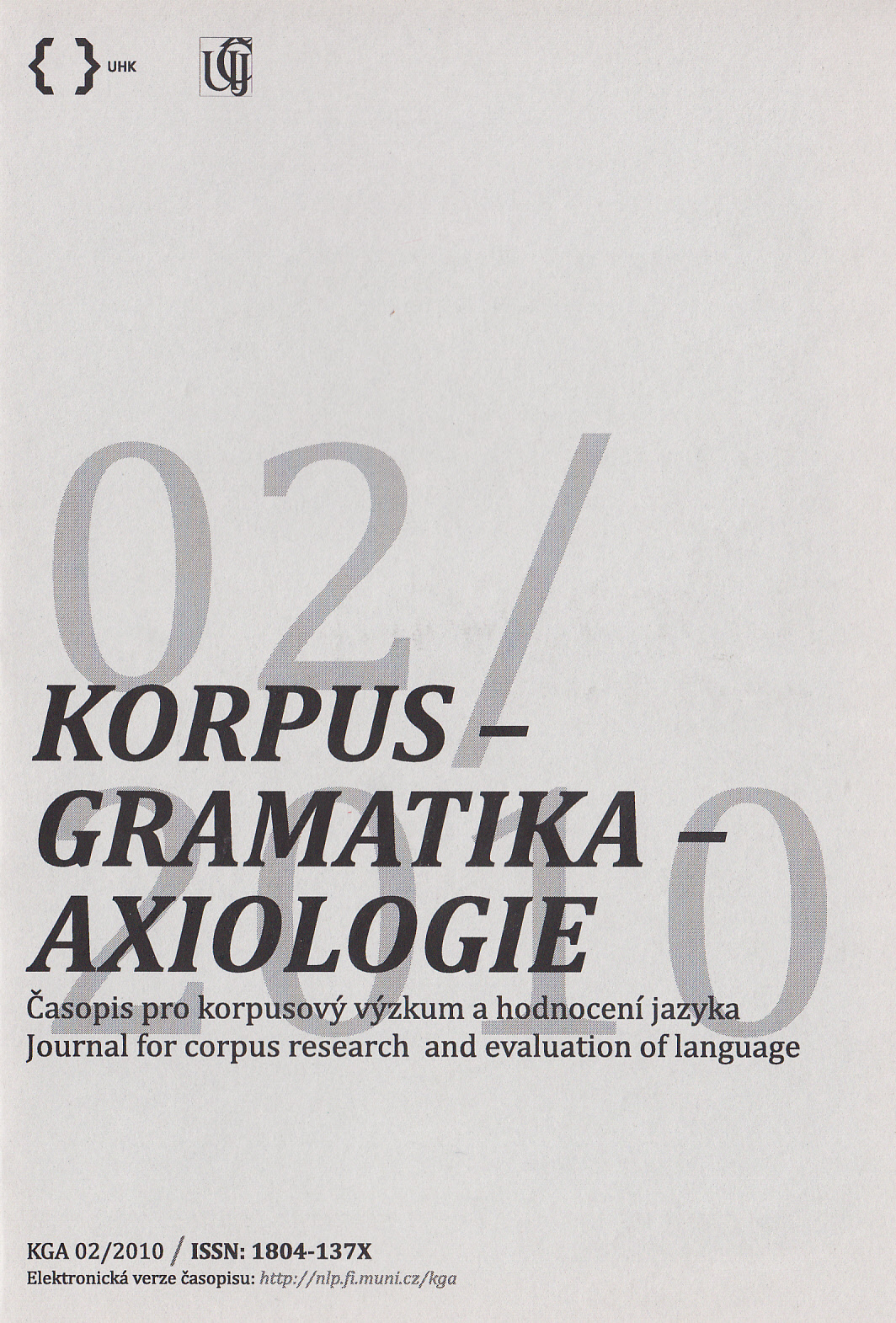Niedrigfrequente grammatische Phänomene als sprachliche Zweifelsfälle
Low-frequency grammatical phenomena and their uncertain status
Author(s): Marek KonopkaSubject(s): Language and Literature Studies, Applied Linguistics, Computational linguistics, Descriptive linguistics
Published by: AV ČR - Akademie věd České republiky - Ústav pro jazyk český
Keywords: corpus analysis; grammatical description; low-frequency linguistic phenomena
Summary/Abstract: Some grammatical phenomena that only seldom appear in the corpora of written language often coincide with speakers’ uncertainty about a given form’s grammatical status. Such display of uncertainty is often subject to prescriptive criticism, which pays little attention to actual usage. However, thorough and discriminating corpus analyses can help in a proper description of various low-frequency phenomena and in situating them more adequately in the grammatical system, against the background of different contexts, communicative situations, and language varieties. To exemplify this potential, this study examines three linguistic phenomena in German, using a corpus--based approach: the dative singular ending -e, the construction aus aller Herren Länder, which lacks the dative plural ending -n, and the non-standard preterite form frug. The results can be seen as a contribution to a more precise grammatical description on the one hand and, on the other, as a basis for an improved, more usage-oriented approach in providing practical advice to language users.
Journal: Korpus - gramatika - axiologie
- Issue Year: 2010
- Issue No: 2
- Page Range: 24-44
- Page Count: 21
- Language: German

